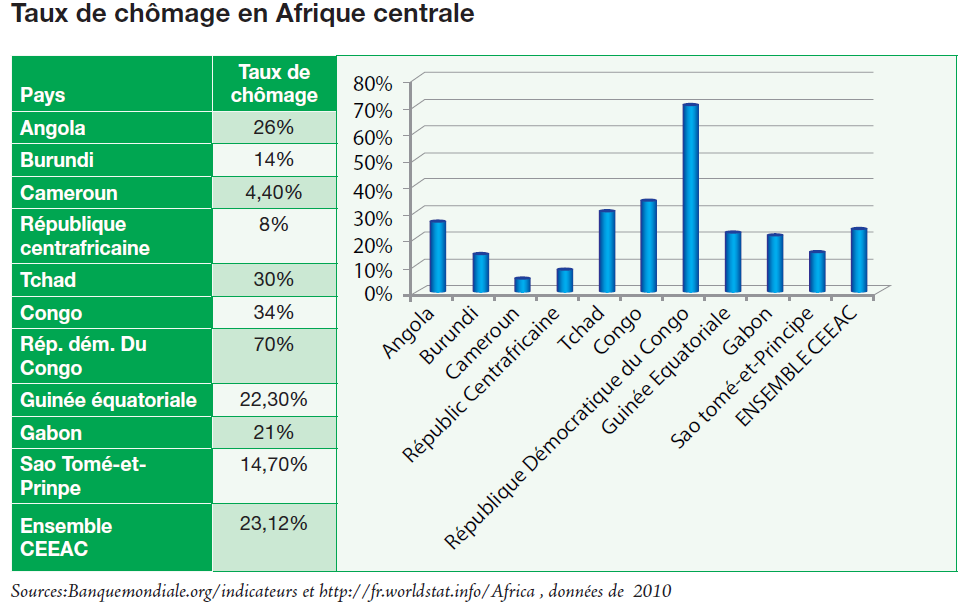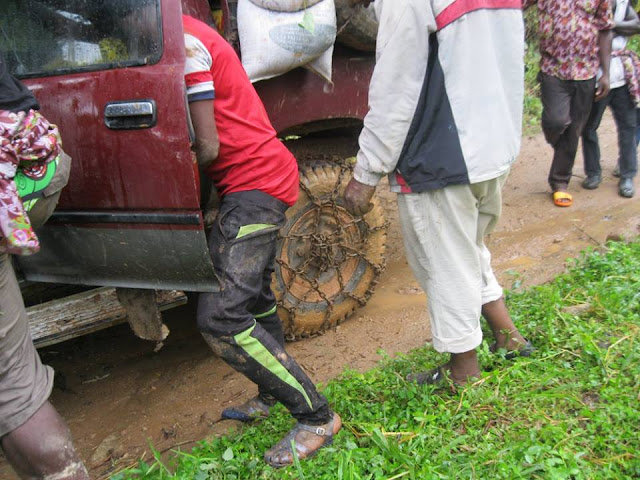Corporate Social Investments: A Gold Mine for Councils?
Corporate social investments are the concrete result of the principle of
corporate social responsibility which has become a catch phrase for companies
of recent, both national and multinational. From telecommunication companies
through the petroleum sector, banks and micro- financial institutions, to food
processing companies, no one is left out. What is corporate social
responsibility and who does what in this guise? How do or can councils benefit
from corporate social responsibility? In the following paper, we attempt an
answer.
An information technology centre here, book donations there, a well to a
community here, bridges built in a neighbourhood there, community assembly,
worship and sports grounds, all bearing the conspicuous stamp of a given
corporation and done with the most intense publicity, and these to the greatest
satisfaction of a mayor here or there, since these corporations’ social
investments fall in line with the council’s mission. According to some authors,
corporate social responsibility can be understood to include “actions of
companies that address social and environmental concerns beyond what is
required by law”. Being outside legal requirements therefore, corporate social
investments depend solely on the will of the corporation.
However, although to the casual observer, “gifts” from corporations may
be the fruits of charity, there is more to it than meets the eye. Companies
that invest socially reap the benefits of being perceived as environmentally
compliant, besides creating an opportunity for advertisement and promotional
sales, and enjoy the sympathy of the population targeted in their investments.
As a result, there is a tendency for the communication departments of these
companies to report or claim more than the real benefits of such actions, a
tendency described as “green-washing”.
To Tene Thierry, of the Institut Africain de CSR, speaking recently in
Yaounde to reporters, “Corporate Social Responsibility encompasses not only
what companies do with their profits, but how they make them as well”.
Consequently, governments need to look into the way these corporations first
make the profits they reinvest socially. Hence the dilemma: while others see
regulation of corporate social responsibility as anathema, and call for entirely
voluntary standardisation like the ISO26000 Standard, others, think there must be some form of regulation of
investments.
Who does what in the guise of corporate social investments with benefits
to councils?
Telecommunications Corporations
MTN
In the hit parade of corporate social responsibility, MTN is a pacesetter,
launching the MTN Foundation way back in 2004. It has devoted 1% of its annual
profits to corporate social responsibilities, managed through it’s MTN
Foundation which is co-sponsored with its staff. The Foundation invests in
health, educational and telecommunications infrastructures to the benefit of
several councils nationwide.
Orange
It recently won the corporate social investment trophy as best health
sponsor in 2014 in a study compiled by ESSEC Douala students. The Orange
Foundation also exists to manage the company’s corporate social investments, a
highlight of which is “Orange Village” a project that constructs or
rehabilitates schools, health centres and water points. The first such project
in Cameroon was implemented in Bonepoupa near Douala in 2014 while the second
was implemented in Ngomedzap Council near Mbalmayo, in 2016. Orange also
proposes “Digital houses” specially targeting women for training in information
technology, having done so in Yaounde, Kumba, Bamenda, Sangmelima and Bertoua.
Financial Institutions
Banks, beside the traditional CSR activities associated with health,
education, sports and community infrastructure development, also have a domain
in which they intervene exclusively: rendering access to financial services
through micro-finance activities, usually in partnership with established
micro-financial institutions. ECOBANK and Afriland First Bank are examples in
this respect. The ECOBANK Foundation partners with 200 micro-financial
institutions to this effect while Afriland First Bank partners with MUFFA and
MC2 to help bring finances to the neediest in councils, both in cities and
rural areas.
Western Union
The Western Union Foundation, the charity arm of the international money
transfer giant donated 200 million CFA francs to support SOS Kinderdorf
International activities in Cameroon, helping host, educate and entertain 200
vulnerable children and orphans from several African countries. This aid took the
form of a cheque issued to the association in October 2015.
Petroleum companies and
transporters
CAMRAIL
This subsidiary of French multinational Bolloré has invested more than
700 million CFA francs in the fight against AIDS alone, between 2005 and 2016.
These investments however, mostly benefited its staff and medical centres,
though fallouts have been noted in councils like Ngaoundere, Belabo and Eseka,
which host some of these centres.
Addax Petroleum
One of the most significant corporate social investments of this
petroleum company benetitted the Buea Community through the equipment of the
Buea University Industrial Engineering Department with machinery and materials
worth 100 million CFA francs in April 2015.
Total Cameroun
This subsidiary of French petroleum giant, Total, signed a convention in
January 2014 with the University of Douala Business School, ESSEC, in which it
helps professionalise training by helping to develop curricula and provide
internships, and in return, employs the best students.
COTCO
Working through its main subsidiary, Exxon-Mobile’s Foundation, this
company, that manages the Cameroonian section of the Chad-Cameroon pipeline, revealed
during the celebration of its 10th anniversary in January 2014 that
it had devoted 2.2 billion francs to health and social infrastructure in
Cameroon for its ten years of existence, in addition to 250 million CFA
exclusively for the riparian communities.
Food processors and
agro-industries
Guinness Cameroon SA
Its parent
company, DIAGEO, a South African concern, runs a “Water is Life” project since
2006, and in 2014, Cameroon benefitted in the form of provision of water points
at several localities throughout the country, a project worth 120 million CFA
francs. Its resumption of sponsorship of the Mt Cameroon Race of Hope in 2013
also helped raise the profile of the event with a 600% increase of the main
prize from 1.5 million to 10 million CFA francs.
Les Brasseries du Cameroun
Environment,
education, health, sports and arts and culture are the corporate social
responsibility warhorses of this Cameroonian brewery giant, SABC, which has
existed since 1948 and dominates 83 % of Cameroon’s huge beer market.
Plantations du Haut Penja
This Njombe
based subsidiary of multinational, Compagnie Fruitière, is registered in Mbanga
and has been active in the Banana sector since 1973. It has subscribed to the
Fairtrade label which represents its commitment to share 1 dollar/carton of
banana exported with the workers. This amount is paid into an account that
sponsors CSR chosen by democratically elected committees based in each
production centre of the company. However, their definition of CSR seems to be
limited to charity, like for most multinationals in the developing world, as
recent events involving a huge corruption scandal where the corporation pays
tax money into the private accounts of top regime barons show.
This is just a tip of the iceberg. However, it should be noted that,
being rivals in business, some of these companies use their corporate social
investments as a new ground of competition, thus reducing effectiveness. This
is another argument for the call of some form of regulation of the domain of
corporate social responsibility, justifying calls by the Egyptian Corporate
Social Responsibility Forum for initiatives to unify
the efforts of private sector to ensure integration rather than competition to
develop the society. This can only be ensured by a regulatory body.
Tengwan Ambe Frederick


Invest with 200$ and get a returns of 5,000$ within seven business working days.
ReplyDeleteWhy wasting your precious time online looking for a loan? When there is an opportunity for you to invest with 200$ and get a returns of 5,000$ within seven business working days. Contact us now for more information if interested on how you can earn big with just little amount. This is all about investing into Crude Oil and Gas Business.
Email: investmoneyoilgas@gmail.com